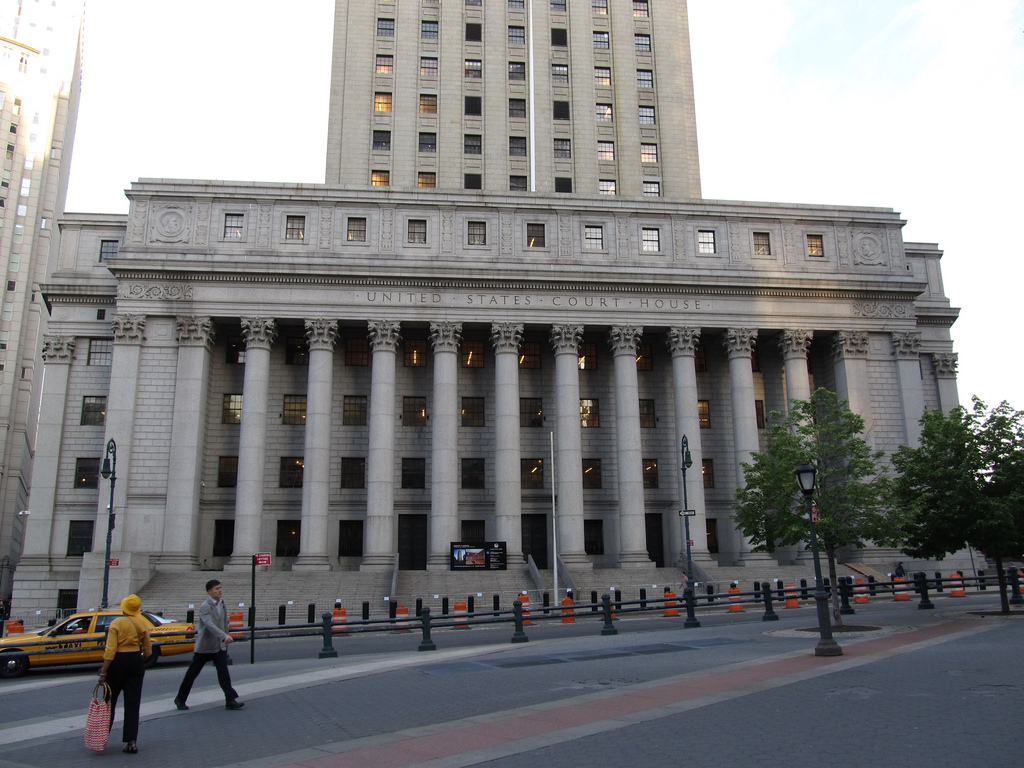What a Judge Should Ask Mueller About Trump’s Tweets
When Michael Cohen first pleaded guilty back in August, the President of the United States declared that his former lawyer had, in fact, not committed campaign finance crimes:
Michael Cohen plead guilty to two counts of campaign finance violations that are not a crime. President Obama had a big campaign finance violation and it was easily settled!

Published by The Lawfare Institute
in Cooperation With

When Michael Cohen first pleaded guilty back in August, the President of the United States declared that his former lawyer had, in fact, not committed campaign finance crimes:
Michael Cohen plead guilty to two counts of campaign finance violations that are not a crime. President Obama had a big campaign finance violation and it was easily settled!
— Donald J. Trump (@realDonaldTrump) August 22, 2018
In response, my colleague at Lawfare, former FBI General Counsel James Baker, observed that the president is the chief legal officer of the government and that his legal views on a matter typically bind the executive branch:
So, what to make of the president’s tweet that he does not think that what Michael Cohen did was a crime? Is that a legal determination by the president that is binding on the executive branch, including the U.S. attorney’s office? Are government attorneys now precluded from prosecuting anyone else who might have been involved in this conduct, including the president himself? Is the FBI precluded from even investigating something that the president says is not a crime? Does the U.S. attorney’s office have to move to allow Cohen to withdraw his guilty plea and have the court dismiss the information?
Baker rightly predicted the way the system would, in fact, handle this matter:
Or will everyone in the Department of Justice simply ignore the president’s tweet? To my mind, that is the most likely outcome here. The Justice Department is likely to assess that whatever it is, the tweet is not a legal determination by the president and is not binding on the agency. But what does that say about the functioning of the executive branch today? What are the long-term implications for the department of simply ignoring the president? What does that mean for the rule of law in the United States?
Today, the president is at it again—once again rendering legal opinions about ongoing criminal matters concerning Michael Cohen, presently before a federal court, on Twitter.
He tweeted:
“Michael Cohen asks judge for no Prison Time.” You mean he can do all of the TERRIBLE, unrelated to Trump, things having to do with fraud, big loans, Taxis, etc., and not serve a long prison term? He makes up stories to get a GREAT & ALREADY reduced deal for himself, and get.....
— Donald J. Trump (@realDonaldTrump) December 3, 2018
....his wife and father-in-law (who has the money?) off Scott Free. He lied for this outcome and should, in my opinion, serve a full and complete sentence.
— Donald J. Trump (@realDonaldTrump) December 3, 2018
Over the next few days, attorneys representing the special counsel’s office will make a presumably different recommendation regarding Cohen’s sentencing to Judge William Pauley III of the Southern District of New York.
If I were Pauley, I would not ignore the president’s tweets. The special counsel’s office is, after all, part of the Justice Department. Robert Mueller is an appointee of the department and bound by Justice Department policies. So if I were Pauley, I would ask the attorney representing the executive branch, of which President Trump is the embodiment, why he or she is not bound by the policy view and legal position that Cohen “should . . . serve a full and complete sentence.” I would also ask what business the Justice Department has prosecuting Cohen at all for what the president has described as “two counts of campaign finance violations that are not a crime.” I would demand to know what business a lowly line attorney for the government has in contradicting the president on a matter about which the executive branch has taken a position. I might even force the special counsel’s office to brief the question of its authority to take a position directly adverse to the president’s own.
I would do this not to undermine the work of the special counsel’s office but to emphasize that the president’s words on a matter of law cannot be meaningless to the executive branch in addressing that same point of law or legal policy in a court of law.
The executive is, after all, unitary—or at least it’s supposed to be.


.png?sfvrsn=48e6afb0_5)


